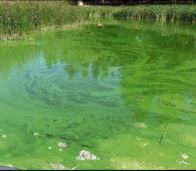TRAKiT offers a new way to do your permitting business online. Learn more.
Jeffrey Warren, Director of Environmental Management
The mission of the Environmental Management Department is to protect, preserve, and enhance the public health, safety, and environment through a balanced program of environmental monitoring and enforcement, innovative leadership, community education, customer service, and emergency response for the citizens of and the visitors to El Dorado County.
Department Units
Administration
Request for Proposals (RFP's), fees, forms.
Environmental Health
Food facilities, domestic wells, small water systems, septic systems, public pools and spas, public health issues.
Hazardous Materials
Implementing the hazardous materials and household hazardous waste programs to ensure that hazardous materials and hazardous waste are properly managed.
Solid Waste
Implementing the solid waste and recycling programs to ensure the safe handling and proper disposal of residential and commercial solid waste.
Union Mine Landfill & Liquid Waste Treatment Facility
The wastewater treatment plant currently processes septic tank waste, portable toilet waste, and liquid waste from the landfill (leachate).
- Please note: The landfill continues to be closed to the public.
Vector Control
Vector / Mosquito control program
Services
Environmental Management employees do their best to protect and serve
the citizens of El Dorado County. We take pride in our leadership and
customer service. Please take time today to fill out our online Customer
Satisfaction Survey to help us better serve you.
Take a short survey on the customer service our staff provided you today.
Would you like to make a field appointment for a test trench inspection, septic system inspection, or well inspection? Make your appointment today.
Need to file a complaint against a facility regulated by Environmental Management or have a general complaint? Please visit our complaint web page.
Do you need parcel research for septic, well, or any other related information? Please use our parcel research request form(PDF, 199KB). For all other records requests, please visit the Public Records Center page for the request.
Additional Information

Popular Links and Programs